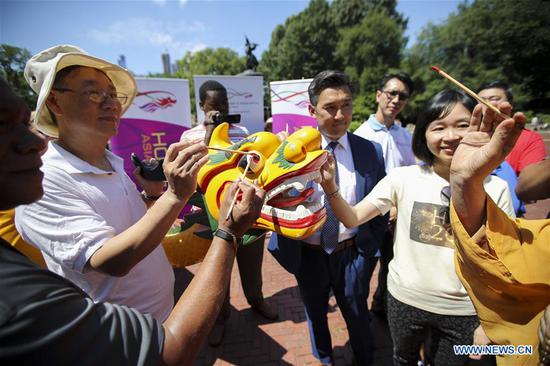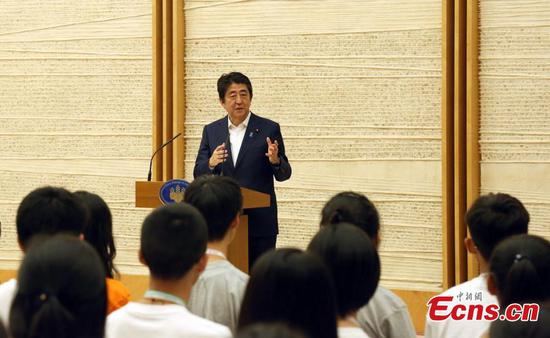Simply scan the bar code of the commodities and use Tencent’s WeChat to pay. This is common in China, but now, it can also be achieved in Fuji-Q Highland park in Japan.
“No need to line up to pay. The price of the Japanese yen can be converted to RMB directly. And I can get a discount by using WeChat pay,” a Chinese tourist told a reporter.
On July 19, WeChat Pay became an official mobile payment partner for Fuji-Q Highland. Most of the stores in the park can use WeChat Pay. And visitors can also use WeChat to buy tickets at a discount, explore the map and check how long queues are.
“WeChat Pay used to collaborate with companies in the retail and catering industry, but now we want to bring convenience to Chinese tourists in more aspects, such as entertainment,” said Zheng Hongmin, marketing director of Tencent’s WeChat Pay international business.
WeChat Pay entered the Japanese market in 2016, and it has spread fast. Over six million Chinese tourists visited Japan last year. Till June, the average number of daily transactions has increased more than six times compared with the same period last year. And the total trading amount rose over five times. However, achieving this is not easy.
Japan is currently behind other countries when it comes to e-payments. The US-based Boston Consulting Group says 65 percent of payments in Japan are settled with cash, double the average of developed nations. However, more than 70 percent of Kenyan cellphone customers use mobile payments. The number jumps to 98 percent in Chinese urban areas.
Tencent’s WeChat Pay is the smartphone payment platform of choice among Chinese. Point-of-sale scanners read QR codes displayed on smartphones to withdraw funds from customers' bank accounts. With WeChat Pay, users can wire money to friends and donations can be collected on street corners. It is common in Japan to see Chinese tourists whipping out their smartphones at the register.
As the 2020 Tokyo Olympics approach, Japan is heading towards being a cashless society, to stimulate athlete and tourist spending. This, also, is an opportunity for Chinese e-payment platforms to grab a bigger market share.


















































